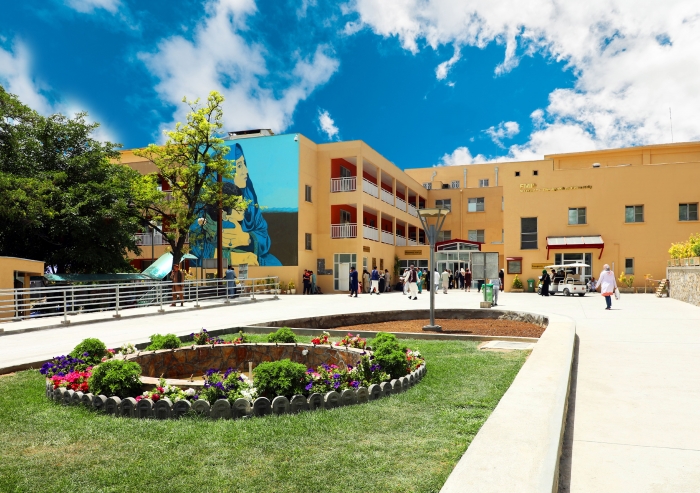Crossroads is a unique initiative as it follows a graduated camps model. It focuses on multidimensional nurturing by engaging young people in a holistic and diverse curriculum with integrated inputs from National Council institutions under the Youth Coordination Forum (YCF). This includes the Aga Khan Youth and Sports Board (AKYSB), the Aga Khan Education Board (AKEB), the Aga Khan Social Welfare Board (AKSWB), and the Ismaili Tariqah and Religious Education Board (ITREB). Moreover, it adopts an age-sensitive approach by providing a continuum of inputs to young people as they transition through different life stages.
Generally, youth aged 12 to 14 experience a period of vulnerability and opportunities characterized by lofty ambitions that often need guided interventions for support and inspiration. A key goal of Crossroads is to recognize this and help the younger participants to make informed decisions that can potentially create a larger positive impact in their lives and in their societies.
Notably, the foundation of Crossroads is amplified by the involvement of dedicated volunteers (including several TKN volunteers) who contribute significantly to its success. Initially, 15 volunteers underwent comprehensive training, subsequently assuming the role of trainers who further guided camp mentors and facilitators.
Zarina Baig, who volunteered as a mentor at Crossroads in May 2022, attended a three-day training session along with other volunteers prior to the camp. “The essence of Crossroads is anchored on the need for a holistic approach to cater to the complex issues of our youth living in diverse geopolitical and socio-economic contexts in Pakistan. The curriculum framework is designed to enable the participants to develop their worldview from global, communal, and individual perspectives simultaneously,” she remarked.
“Crossroads gave me the opportunity to learn more about myself as an individual – something that I had never attempted to do before. It allowed me the space to experiment and test my own capabilities,” said Fawad Nabi Ali, a former participant from Booni, Chitral. Samreen Anjum, who attended the camp in 2022, added that the camp provided her with a paradigm shift, one that continues to leave an indelible mark on her perspective and approach to life a year after it ended.
The camp comprises two core modules, each thoughtfully curated to empower youth in their journey towards becoming astute “global citizens”, adept at addressing the complex opportunities and challenges of the modern world. These modules provide a profound understanding of Ismaili identity, encompassing its historical legacy and ethical values, thereby nurturing participants as eloquent community ambassadors.
Furthermore, the camp offers several elective modules, each dedicated to exploring vital themes such as the seamless integration of faith into daily lives, fostering and sustaining healthy relationships, and making judicious career choices based on well-informed decisions.
Naseema Ali, another camp mentor, said, “Crossroads provides a nexus for the Jamat to connect with the modern world, bridging the gap between traditional and contemporary values, and enabling young people to navigate the juxtapositions of the modern globalizing world.”
Over 50 TKN volunteers offered their services for Crossroads across Pakistan, as camp leads, mentors, facilitators, and administrative and logistic support teams. In a dynamic synergy of responsibilities, these volunteers cultivated an immersive camp environment that fostered both learning and meaningful dialogue, also while impeccably managing camp logistics to enhance its significant impact.
The camp has, thus far, catalyzed transformative journeys for over 650 participants across Gupis, Ishkoman, upper and lower Chitral, Hunza, Gilgit, and Southern and Central regions.
Moving forward, a post-camp mentorship model is expected to be implemented through Crossroads to ensure that there is a constant follow-up system in place between the mentors and participants in physical and virtual spaces to provide continuous mentorship and guidance to the graduated youth.
Overall, the Crossroads Youth Camp is a nexus of formative experiences providing young members of the Ismaili community a dynamic environment to become ambassadors of the Jamat and agents of change in the world. It serves as a stellar example of how the institutional and individual capacities of the Jamat can be leveraged to create impact on larger scales and nurturing future leaders within the community. TKN and other volunteers have made an outstanding contribution in helping to make the Crossroads vision a reality.














